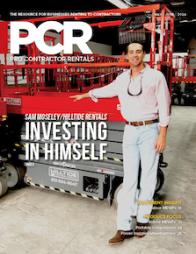Economic report: Looking up in 2017
ITR Economics’ economist Alan Beaulieu shared insights with attendees at the Specialty Tools and Fasteners Distributors Association (STAFDA) on election day.
He’s a great speaker who makes economics topics interesting, understandable, and often, humorous. As an ardent note-taker, here are some of the take-away points I’d like to share with our readers:
Key points:
• How Donald Trump’s election will affect the economy in 2017 (it won’t)
• Economic downturns are party-blind
• The U.S. economy’s place in the world (we’re No. 1!)
• Good news on energy and CO2 levels (Why don’t we hear about this?!)
• The threat of recession in the short term (small) and depression in the long term (large)
• China and the U.S. NEED each other
How Donald Trump’s election will affect the economy in 2017 (it won’t)
Beaulieu spoke on the morning of the election, before the polls closed. His main point: No matter who was elected as president of the United States, the election will have no effect on the economy in 2017. He predicts 2017 will be a good one economically.
Economic downturns are “party blind”
Political naysayers often predict that the election of one party over another for president spells economic disaster, but an analysis of history shows this isn’t so, Beaulieu says. In his presentation, he cited a graph that correlated political party in the Oval Office vs. the duration of recessions. “Recessions are no more prone to one party than another,” he says.
The U.S. economy’s place in the world (we’re No. 1!)
While many lament the departure of manufacturing and the loss of good-paying manufacturing jobs in the United States, Beaulieu states that’s not true.
“Manufacturing is on its way up due to near-sourcing, technological improvements and the United States’ capital vs. labor position. We are highly efficient at what we produce. The low cost of energy and our consumer base creates a strong demand for our products,” he says.
Beaulieau also puts the United States’ economic might in perspective: “The United States’ share of the world’s gross domestic product is 24.5 percent. China produces only 15 percent of the world’s GDP. Click here to see how countries around the world stack up in their contribution to world GDP.
“To put the economic power of select states in perspective, the economy of Texas is big as all of Canada and California’s economy is as big as Brazil’s economy. A Rust Belt state such as Wisconsin has the economic clout of the Philippines, which is ranked 36th in world GDP. The combined GDP of the top 13 states in the United States equals the economic impact of China. Our GDP is going up and our economy is getting stronger,” Beaulieu explains.
Although many will cite Russia as a world power, economically, that’s not the case. “Russia is responsible for only 1.7 percent of the world’s GDP. ”Russia is dying as a culture. For example, the average lifespan for a Russian male is 62 years of age."
“U.S industrial production is moving up. That includes mining, oil and gases and manufacturing, and we predict that GDP will grow 2.9 percent in 2017. For those who remember the post-war years in the ’40s and ’50s, that seems low, but it is hard to grow GDP as a percentage when the country’s GDP amount is so large. The amount of growth needed to move percentage points on 100 is much less than the amount needed to move percentage points on one million. Anything near 3 to 3.5 percent growth is very acceptable,” he says.
Good news on energy and CO2 levels
Beaulieu predicts fuel prices will rise in 2017 because the glut in inventory has dissipated and consumption is increasing in light of the strengthening economy.
“Oil is trading at $45/barrel and producers are happy with that. Today, 10 percent of our industrial production is based on gas and fuel production. We will see increases in energy costs in late 2016 and 2017.
“OPEC will decide in November if it will cap production and Russia will make that happen because oil is Russia’s main export and it needs higher oil prices to survive,” he says. Saudi Arabia, one of the kingpins of OPEC, can ill-afford low oil prices because its economic model is based upon the premise that oil will trade for a minimum of $90 a barrel, which is twice the current price. Iran, Beaulieu reports, is under similar economic pressure.
“With the development of oil and gas fields throughout North America, it’s become apparent to the world that the United States doesn’t need the Middle East any more. We have the equivalent of 300 years of oil and gas available in the United States; Canada and Mexico also have vast resources. But if the United States pulls out of the Middle East, it will create a power vacuum in the region,” he says.
For the United States to build on its positive economic momentum, the country needs to have a low-cost oil and energy. “However, we are using less oil than we have ever used to fuel economic growth. Today, 10 percent of our energy needs are provided by renewable resources and the carbon dioxide emissions have dropped drastically, -- in fact, this year, the United States has reduced its level of CO2 emissions that meets the reductions outlined in the Kyoto Treaty. That’s huge, but you don't read about it in the news,” he says
He predicts coal will go away as a fuel source as cleaner-burning and easier to transport natural gas replaces it. “Even still, energy prices will continue to increase. Renewable energy is more expensive to produce, so costs will increase.”
Coming recession and long-term outlook
While Beaulieu predicts smooth sailing in 2017 and 2018, he predicts a mild recession in 2019. “This will be nothing on the order of the Great Recession in 2008 and 2009. Of course, the media will freak and if the new president gets tagged with blame for the recession, it will be a one-term presidency.”
In the long term, Beaulieu paints a much darker picture. “If you’re a baby boomer, you’re in the clear. But millennials and Gen X and Gen Yers will face an economic depression on the scale of the Great Depression in or around 2030,” he says. There are ways to prepare for it, but if we wanted to avoid this, we needed to take action 50 years ago, and we didn’t.”
He cites increasing healthcare costs, over-valuation of currencies (most notably the U.S. dollar) and the inability of countries around the world to service their increasing debt.
"It would not be surprising to see 25 percent unemployment, business failures and huge cuts in wages. If you’re a baby boomer, don’t sell the big house; it’s likely your family will be moving back in with you. This depression will last 10 years; longer if the government gets involved.” He predicts Mexico and Australia may be safer havens during this trying time.
Beaulieu has written a book, Prosperity in the Age of Decline, that offers strategies to minimize the effects of the 2030 depression he predicts. ”However, there are lots of opportunities for business in the coming 14 years,” he says.
China and the U.S. NEED each other
Although U.S. producers lament about China dumping products in the United States, Beaulieu cautioned there is a huge difference between dumping and competition. Further, the influx of Chinese purchasing U.S. Treasuries is keeping our economy afloat. “If China fails, so does the United Sates. We need a steady diet of cash from outside the United Sates to feed our debt appetite. If China began to dump U.S. Treasuries from its portfolios, the U.S. Dollar would fall and inflation would skyrocket.“
Beaulieu states that China has its challenges. “China will fake it until they make it. Its financial system is in disarray. Its population is actually declining, so its workforce is dropping. There are more than 125 million men in China without a female/spouse. When there is no hearth or home, these citizens will be more willing to go to war because they have nothing to lose. One likely target is Africa, which has everything that China wants. There is a massive movement in China to get established in Africa,” he says.
Learn more about Alan Beaulieu and ITR Economics
-- Clair Urbain, Editor, Pro Contractor Rentals magazine, PCR Weekly e-news









